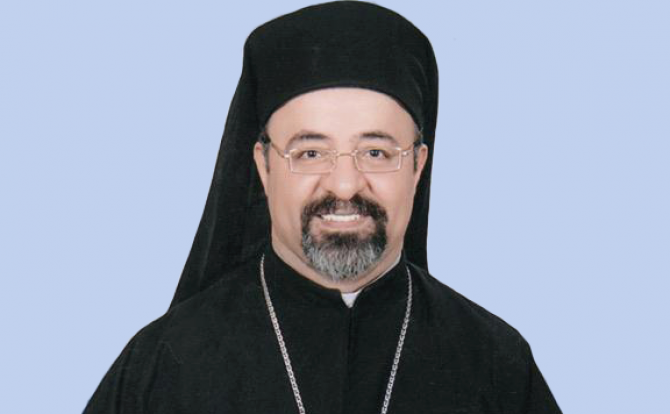CAIRO: The following statement was issued by an independent United Nations human rights expert on the independence of the judiciary:
The Special Rapporteur on the independence of judges and lawyers, Leandro Despouy, expressed serious concern over a law regulating the judiciary in Egypt, which was approved by the Egyptian Parliament on June 26, 2006. Promulgation of the law depends now on the will of President Hosni Mubarak.
In a letter dated July12, 2006, addressed to President Mubarak, the Special Rapporteur expressed his concerns regarding the negative impact of the judicial authority law on the independence of the judiciary in Egypt, and urged him to refrain from promulgating the law and to send the law back to the Parliament for reconsideration. He underlined that, contrary to the process of adoption of the current text, it is essential that discussion on a new law take place in consultation with all sectors concerned, in particular the Judges Clubs and experts in constitutional law, whose point of view should be duly taken into account.
Concerning the text of the law, the Special Rapporteur expressed particular concern over the fact that it does not set out clear criteria for the selection and appointment of judges and of the Chief Prosecutor, that it fails to recognize the right of judges to form and join associations of judges to represent their interests and protect their judicial independence and that it does not set out objective criteria for the assignment of cases to judges, which would allow heads of courts to assign specific judges to cases against the right of every citizen to their natural judge. The law also fails to clearly address the separation between the prosecution and the executive power.
Moreover, the Special Rapporteur is seriously concerned by the fact that the law does not provide judges with basic fair trial guarantees in the framework of disciplinary procedures. The law prevents judges to be represented by a lawyer to defend themselves before a disciplinary court, and does not provide them with an effective right to challenge a disciplinary decision before a higher court, in breach of the constitutional and internationally recognized right of every person to have a judicial decision reviewed by a higher tribunal and to be represented by a lawyer of one s own choice before a court.
Finally, the law keeps the system whereby judges are seconded to perform non-judiciary work within the executive branch and raises the period of secondment from three to six years. Such secondment is incompatible with the separation of power and the independence of the judiciary. More worryingly, no objective criteria are set for decisions of secondment: therefore, such decisions can be used as a significant pressure on judges to threaten them or reward them, and therefore seriously infringes their independence.
In a June14, 2006 statement, the Special Rapporteur had already expressed his concerns on the draft law, as well as on the disciplinary proceeding against judges of the Court of Cassation and on the violent repression of peaceful demonstrations in support of the judges and their claims for the protection of their independence.
The independent expert reiterates his call to Mubarak not to promulgate the law and to allow for its re-discussion in the Parliament with the full participation of the Judges Club and experts in constitutional law, in order to allow the Parliament to adopt a considerably improved version of the law which guarantees the proper functioning of an independent judiciary. The independence of the judiciary is a fundamental cornerstone of democratic societies which cannot be sacrificed. It is a fundamental safeguard for justice and for the protection of the human rights of all people in Egypt.
The press release is one of the reactions to the sending of two judges who criticized the alleged rigging in the 2005 parliamentary elections to a disciplinary hearing. A number of judges organized a sit-in inside the judges club to support their colleagues, while civilian supporters hurriedly organized another one in front of the club. More than 60 protestors were arrested, with reports of alleged torture surfacing. Two of the detained remain in prison until today.
The report is excellent, it really represents the judges demands, which the government didn t respond to and refused, says Hisham Al-Bastawisy, one of the two judges who were faced with the disciplinary hearing. We hope that President Mubarak agrees to the re-discussion of the judicial authority law in the parliament. The discussion should take into consideration the judges demands.
The report reflected the truth about the judicial authority law. It was a surprise that the United Nations knows the truth where it s not as obvious to the Egyptian government, says Mahmoud Mekki, the second judge who was faced with the disciplinary hearing. Without a doubt, [the] United Nations report puts pressure on governments that respect their image and place to other nations. Politics has its calculations. By evading the report, the government would face unknown results.
We haven t gotten that report yet; we will comment after studying it, says Magdy Rady, a government spokesman The Law was issued and was accepted by most of the judges.
The government didn t respond to the judges demands, and so the judicial authority in Egypt is not independent. We still have a long way to being independent, says Nagui Derbala, judges club agent and the deputy head of the court of cassation. We welcome the report very much . Responding to the report would be a good initiative by the president for reform in Egypt.
